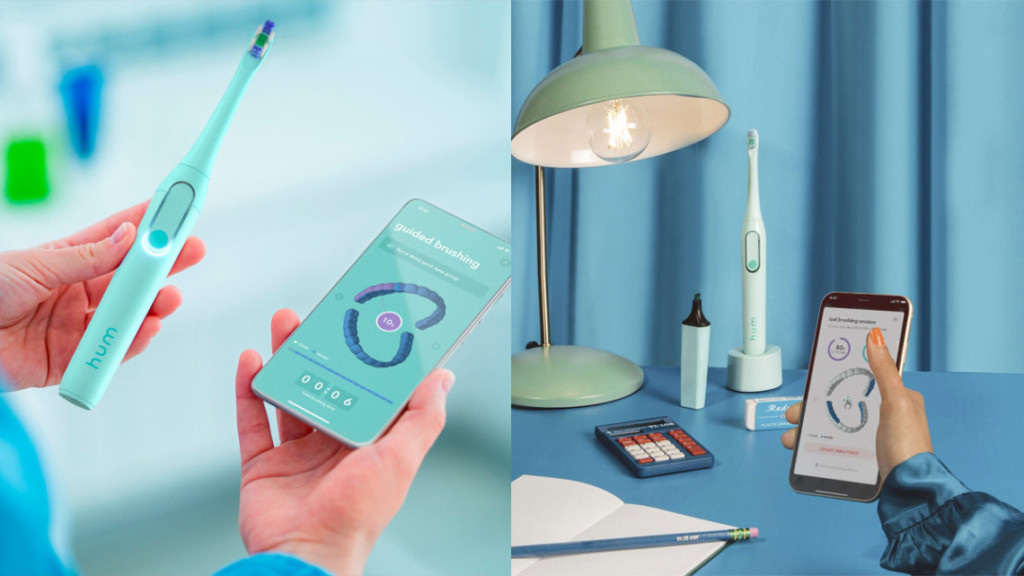Through a new partnership with meditation app Headspace, CPG manufacturer Colgate-Palmolive is hoping its smart electric toothbrush Hum can create a sense of calm for people doing their best to get to the end of 2020.
Hum, which debuted in August, contains sensors that track how often, how long and how well people brush their teeth. Once connected to the app, customers can use this information to brush better.
“Taking a moment for mindfulness in times like this is critically important,” Bill Van de Graaf, vp of marketing for North America at Colgate-Palmolive, told Adweek.
Colgate-Palmolive reports that in recent weeks, Hum users have gone from brushing around 1.6 times a day to more than twice. While the average person brushes for 45 seconds, less than 14% of Hum customers brush for under a minute. More than 34% brush for two minutes or more. Perhaps most importantly, Hum users have improved their brushing skills, going from cleaning 64% of the mouth up to 85%.
Hum’s partnership with Headspace, announced last week, is meant to encourage users to establish a well-rounded wellness routine. As part of the deal, Headspace will provide soothing content through the Hum app.
“The mission is really to create healthy habits, and we think Headspace is a great millennial-targeted brand that shares a similar mission,” Van de Graaf said.
Meditation apps, such as Headspace, Calm and Breethe, have been in high demand during what’s turned into a turbulent year filled with job losses, civil unrest and a public health crisis. Consumers worldwide spent around $1 billion on health and fitness apps during the first half of 2020, up 25% compared to the same period last year, according to mobile data and analytics provider App Annie.

Hum is up against other smart toothbrushes, such as Procter & Gamble’s Oral-B, Philips Sonicare and the direct-to-consumer startup Quip. During the past 52-week period, sales figures from Nielsen show that Americans spent more than $215 million on electric toothbrushes, a category that includes smart toothbrushes. That’s 1.8% higher than dollars spent during the previous 52-week period.
Smart devices in general are on the rise as both consumers and companies appear to benefit from the increasingly connected technology.
“We live in a world of data proliferation, where an enormous amount of information is being generated, captured, processed and served back to us in digestible tidbits via consumer tech devices in our pockets, on our wrists and sitting on our bedside tables,” Dipanjan Chatterjee, vp and principal analyst at Forrester Research, told Adweek. “We are now not only accustomed to hyper-personalization and constant feedback, we demand it.”
Behavioral data Colgate-Palmolive gathers from Hum will go toward informing other innovations down the road, the company said.
Chatterjee noted that another aspect of the increase in smart devices involves sending a message to both shoppers and potential employees that the company behind the invention is keeping up with the times.
“The idea of branding is all about signaling—projecting a persona and influencing perception,” Chatterjee added. “By adopting a tech-forward approach to its product portfolio, Colgate is signaling that it’s about energy and innovation.”
In addition to oral care products, Colgate-Palmolive also sells deodorant, hand soap and pet food. The company reported net sales grew 5.5% to $4.2 billion during Q3 of 2020. Colgate-Palmolive claims to control 35% of the toothpaste market and 41% of the manual toothbrush market in the U.S.
https://www.adweek.com/brand-marketing/colgate-palmolive-aims-to-turn-toothbrushing-into-a-quiet-moment-of-mindfulness/

